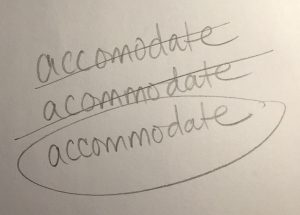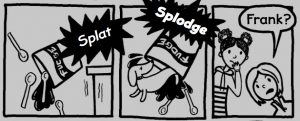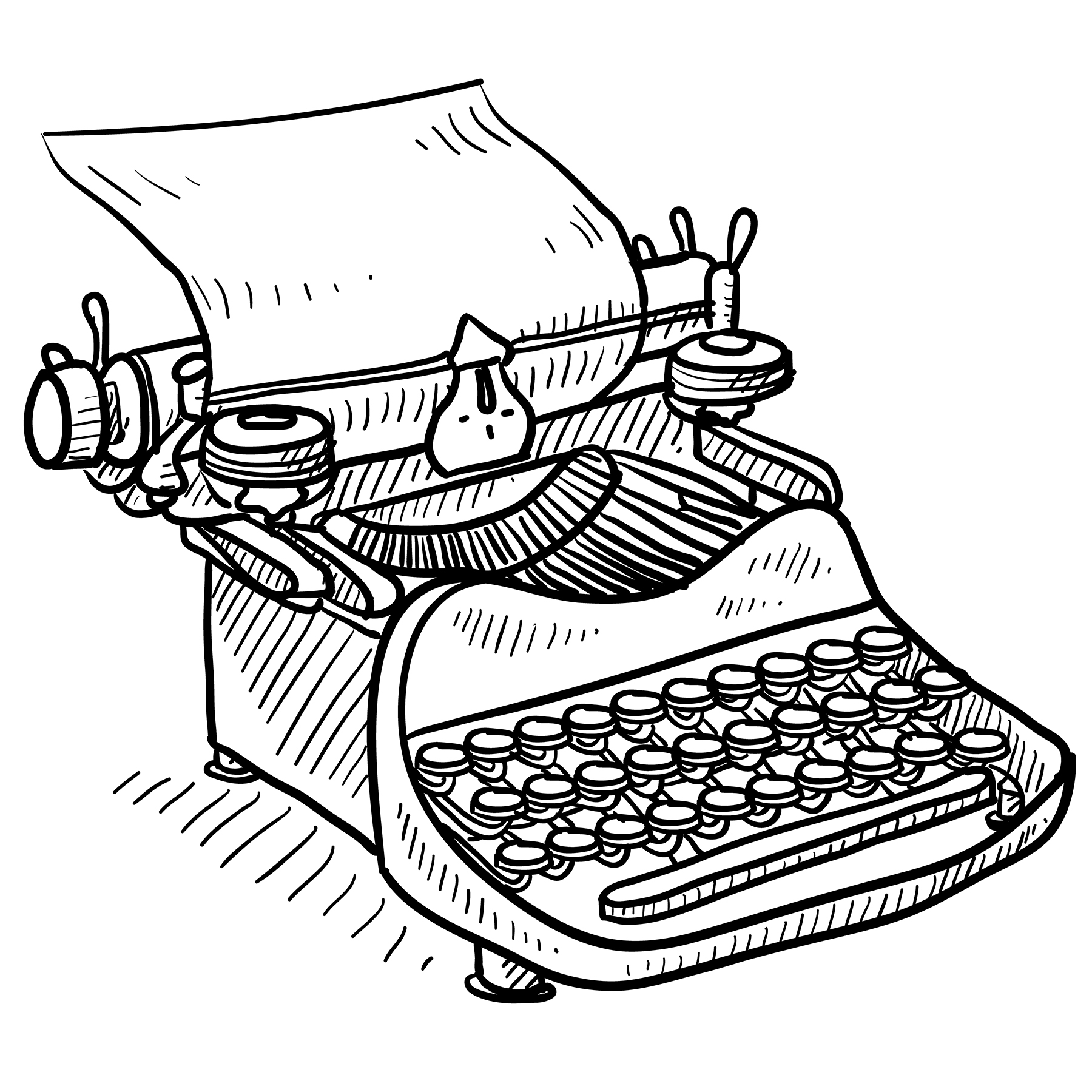On a sunny, breezy evening in Montreal, my two daughters, my nephew, and I walked through the front door of an unassuming-looking restaurant named Onoir.
Double take
 Who doesn’t find a few words stubbornly hard to spell?
Who doesn’t find a few words stubbornly hard to spell?
When I encounter one of my bugbears, I scribble down multiple versions of it, and the correct one usually jumps out at me. For example, is it “accomodate,” “acommodate,” or “accommodate”? Ah! Now that I see it written down, it’s clearly the third one. With a few exceptions like accommodate, I have a reasonably sound spelling brain, which comes in handy for my writing and editing career. Over the past few years, though, I’ve come to realize that I know how to spell many words, but I have no idea why words are spelled as they are.
I’d never given the origins of English spelling much thought until I began co-writing stories for children who need explicit instruction on how to decode (read) and encode (spell) words. My co-writer, Elspeth Rae, is a teacher trained in the Orton Gillingham approach to helping children with dyslexia learn to read and spell. Together, Elspeth and I write the Meg and Greg books.

Last year, we were writing a story in which an adorable dachshund named Frank barrels into a kitchen, knocks a tub of fudge frosting off the counter, and ends up with frosting all over his backside. (Keep in mind that these stories are for children ages six to nine!) Elspeth suggested we title the chapter “Fudge Butt,” which seemed reasonable. I watched my screen as she typed the words into our open Google doc (a superb tool for writing simultaneously from two locations). Looking at “butt” typed on the screen prompted me to remark, “‘butt’ the noun gets a double ‘t,’ but ‘but’ the preposition gets just one. Weird.”
“Not weird,” Elspeth responded. “Lots of English words are spelled as they are for a reason.” Centuries ago, she told me, scribes were trying to impose spelling logic on English words to provide clues to word meaning and pronunciation. In Spell It Out (Picador, 2014), linguist David Crystal describes the many tools scribes used in their quest.
One tool was the use of double consonants. In the case of “but” and “butt,” the former is a grammatical word (article, preposition, etc.) and the latter a content word (noun, verb, adjective, etc.). Grammatical words tend to be only one or two letters—“a,” “an,” “to,” “in”—whereas most content words are three or more. Therefore, scribes boosted very short content words by adding a letter. Words that received this treatment include “add” and “egg.” In addition, some grammatical and content words are pronounced in exactly the same way. Think, for example, of “in” and “inn” and “an” and the name “Ann.” In those pairs, the single- and double-consonant endings distinguish the meaning of each word. In “butt,” the second ‘t’ gives this noun more substance and also differentiates it from the preposition of the same pronunciation.
Another conundrum for scribes was how to indicate whether a vowel should be pronounced with a short sound (like the “a” in “rat”) or a long sound (like the “a” in “rate”). They used various tools, such as adding a silent “e” to the end of a word to distinguish the pronunciation of “hop” and “hope,” “sit” and “site,” “cut” and “cute.” They also used double consonants to indicate a short vowel sound. A scribe named Orrm, sometimes spelled Orm or Ormin, applied this tool in the 1200s to render sentences like “The ratt rann upp and bitt the dogg.”
The nuisance of having to use so many pen strokes may be why other scribes didn’t follow Orrm’s lead. However, his system stuck for one set of words: the Buzz Off Miss Pill words, which have a short vowel followed by a doubled letter “z,” “f,” “s,” or “l.” Crystal suggests that these words kept their double consonant to show how their end-sound carries in speech, as in “The fluff on the hill is moss,” rather than ending abruptly, as in “Stop that cab!”
Double consonants also flag the presence of a short vowel when a suffix comes along. Add –ing to the end of “hop” and the word says “hoping” with a long vowel sound. So to distinguish the act of jumping up and down on one foot, the “p” doubles to give “hopping.” Likewise, we can correctly read “siting” and “sitting,” “planing” and “planning,” “riding” and “ridding,” all thanks to the double consonants.
What about that mischievous “accommodate” with two sets of double consonants? In this case, the word came from Latin with prefixes added onto a root word. The root “modus” (measure or manner) got two prefixes: “ad” (to) and “com” (together). The first prefix had its “d” transformed to a “c” for easier pronunciation (thereby admitting it to a marvellously named group, the chameleon prefixes). Together, “ac” + “com” + “modate” makes “accommodate.”
Voilà! With just a dash of etymology, a word with tricky spelling that has dogged me for nearly half a century has been reshelved from confounded to clear in the spelling section of my brain. No longer must I scribble “accommodate” and its possible other spellings on paper to sort out the double consonants.
Now, is it “neccessary,” “neccesary,” or “necessary”?
This Post Has 4 Comments
Comments are closed.




Thanks for this, Rowena. I learned something and was also entertained!
Thanks, Naomi! I’m so glad you enjoyed it. The English language sure is interesting.
Very interesting and informative. A joy to read.
Etymology is a fascinating science.
Thanks, Ann! Yes, it is. The more I learn about etymology and other aspects of English, the more I’d love to take a linguistics degree.